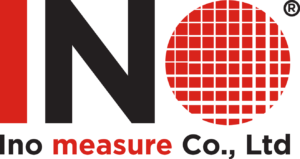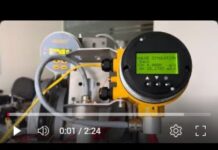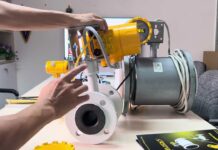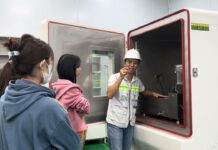Process control loop Basics – Instrumentation technician Course – Lesson 1
Các câu hỏi, thắc mắc, thông tin liên quan đến sản phẩm được giới thiệu trong video dưới đây từ khâu mua sắm, lựa chọn, sử dụng, cài đặt hay thay thế, vui lòng liên hệ với INO Team (Đại lý, Nhà phân phối, Partner tại Việt Nam) để được hỗ trợ và tư vấn kịp thời.
– – – LƯU Ý – – -: Với những thiết bị không được liệt kê ở đây không có nghĩa là chúng tôi không hỗ trợ được bạn, Công ty chúng tôi chuyên đề xuất giải pháp, tư vấn mua sắm và cung cấp thiết bị về:
Nhiệt độ (tiếp xúc và không tiếp xúc), áp suất và chênh áp (Cơ và điện tử), lưu lượng, mức bồn bể, dò tìm rò rỉ khí nén, chẩn đoán bẫy hơi, đo mức bùn và mật độ bùn trong xử lý bùn và xử lý nước thải, camera quan sát ở nhiệt độ cao cho lò luyện thép và cán thép, camera cho lò nung Clinker nhà máy xi măng, pressure chart recorder, thiết bị siết bu long bằng thủy lực, khí nén hoặc bằng điện, động cơ, nguồn PLC, PLC, Biến tần, khởi động mềm, biến trở lỏng cho nhà máy xi măng, đầu đốt, burner, cảm biến quang học, cảm biến laser, cảm biến tiệm cận, siêu âm, thu nhận dữ liệu, lưu trữ và truyền dữ liệu (Data logger), chẩn đoán tình trạng động cơ bằng rung động, thiết bị hiệu chuẩn nhiệt độ, áp suất, thiết bị bảo trì đa năng, thiết bị siết lực, hiệu chuẩn và cân chỉnh, thiết bị phòng Lab…
Công ty TNHH Giải pháp và Công nghệ Đo lường INO, nhà cung cấp các thiết bị đo lường và tự động hóa công nghiệp.
Lesson 1 – Process Control Loop basics and Instrumentation Technicians. Learn about what a Process Control Loop is and how Instrumentation technicians work on them. This will give an introduction to instrumentation engineering principles.
I’ll discuss the various types of process variables industry has including Pressure, Temperature, Flow, Level & PH.
Industry wants to control these process variables using process control loops. Process control loops are made up of:
– Process variable
– Setpoint
– Sensor
– Logic solvers
-Actuators / final elements.
Let’s start with an example we are all familiar with – A home heating system – This isn’t exactly how all heating systems work but it will help us understand a process control loop in terms we are all familiar with.
In our example of home heating system, we have all the components of a process control loop.
setpoint – This is the temperature we decide we want our rooms to be so we are nice and comfortable.
Process variable – This is the actual temperature of the room at this very moment.
The sensor – In this example the thermostat of the heating system is the sensor. It sends a signal of the current temperature of the room to the boiler.
The logic solver – Our boiler electronics is acting as the logic solver. Comparing the setpoint, the temperature we want our room to be, the Process Variable, the actual temperature of the room and deciding when to turn the boiler on
The actuator / final element- Actuators act to control the process variable. Our radiators in the room are the actuators. When the boiler ignites and pumps hot water to the radiator the room starts to warm.
These separate parts all work to keep the room at the perfect temperature.
This is the same in industry, although sometimes things are a lot more complicated!
Instrument techs work with process control loops by performing the following tasks:
Calibration of sensors – This is comparing the sensors against a constant in order to ensure accuracy of the equipment.
Planned maintenance. As well as calibration this can also include function testing of equipment to make sure it behaves as expected and prevent future breakdowns.
Repair – When planned maintenance fails to prevent equipment going wrong, Instrument technicians will be tasked with the repair of failed Instruments. This involves skilled fault finding.
As well as working on process control, Instrument techs also work with plant safety systems. This involves working on emergency shutdown systems that automatically put the plant in a safe condition if there is an emergency.
On petrochemical sites there is also equipment that detects fire and gas releases. Instrument technicians will be in charge of maintaining this equipment.
There is a lot to dive into and learn here. If you wish to learn more about the topics we have spoken about and much, much more. Please subscribe to the channel and click the notifications button for great videos in the future.
▶▶Check out brilliant T-shirts / Merch at my store:
https://www.redbubble.com/people/rudd4y/shop?asc=u
▶▶Check out my website for more articles on Instrumentation:
https://www.instrumentationcontrol.info/articles
Khách hàng ở Việt Nam, vui lòng liên hệ để mua hàng.
Web: www.ino.com.vn | Mail: info@ino.com.vn
Tel: (+84) 028 73000184 | Hotline: 0947200184
Website: http://www.ino.com.vn Website: http://www.ino.vn
Please visit INO YouTube Channel for more Video
https://www.youtube.com/inomeasure




















